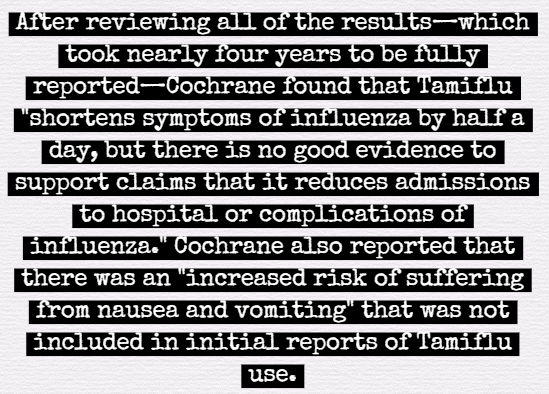Lack of Clinical Trial Results Reporting Prompts Outcry from World Health Organization and AllTrials

Another prominent health organization is putting pressure on clinical trial researchers to make publically available all of their experimental treatment findings.
Mesothelioma Help recently reported on the campaign being run by AllTrials to push for clinical trial transparency and on a Duke University study that concluded clinical trial results are grossly underreported. And last week, the World Health Organization (WHO) announced that even after the creation of its International Clinical Trials Registry Platform (ICTRP), “a substantial number of clinical trials remain unreported.” It is calling for complete disclosure of trial results.
WHO established the ICTRP from a World Health Assembly Resolution passed in 2005 that called for “unambiguous identification of all interventional clinical trials.” Through the WHO ICTRP, trial records from registries in the U.S., European Union, China, Japan, and other international partners are imported and made centrally accessible.
In an April 14 statement published in PLoS Medicine, WHO addressed concerns that the professional publication of trials may be selected based on their results—with negative trial results potentially not submitted or accepted for publication or otherwise made public. Consequently, trial leads may be wary of reporting some results, leading to incomplete data and inadequate information for decision makers.
The announcement from WHO is applauded by the mesothelioma community. With no cure for the asbestos-caused cancer, clinical trials offer hope to patients for a new, effective mesothelioma treatment that may not otherwise be available. Without access to results, however, doctors and researchers may never find out about successes in the pipeline.
Expert Insight
World Health Organization
“There is an ethical imperative to report the results of all clinical trials, including those of unreported trials conducted in the past.”
Incomplete Drug Reporting Leads to Confusion, False Expectations
The popular anti-influenza medication Tamiflu offers a window into how inadequate clinical trial reporting can lead to uninformed healthcare decisions.
A 2014 report from the Cochrane Library, a UK center for epidemiology and public health data, claimed not all of the results of Tamiflu clinical trials were published before the UK, Australia and the U.S. began stockpiling the drug touted as limiting the length of the flu in patients, limiting complications and reducing the risk of getting the flu.

Dr. Ben Goldacre, co-founder of AllTrials, which calls for full reporting of all past and present clinical trials, said that if the Tamiflu information had been fully disclosed, use of the drug may have been significantly lower. “I can say for definite that we would have been much less likely to buy Tamiflu,” said Goldacre on the April 16 Lateline from Australian Broadcasting Corporation.
“We need the full data from clinical trials made available for all drugs in current use,” said Dr. Fiona Godlee, Editor-in-Chief, BMJ, in the April 10, 2014, press release announcing the Tamiflu findings. “Otherwise we risk another knee-jerk reaction to a potential pandemic. And can we really afford it?”
WHO Pushes Dual Reporting Strategy
WHO wants all clinical trial researchers to make the main findings of new research available within a year by publishing results in a peer-reviewed journal as well as a publically-available clinical trial registry. The organization is also calling for disclosure of older, unreported clinical trials, saying the results could still impact scientific research today.

Although WHO has no control over ensuring these steps get accomplished, it is calling on organizations and governments to help ensure compliance.
“This is a problem that cuts right across the board whether it’s industry or non-industry,” said Goldacre. “It’s a huge cultural failing in medicine.”
Learn more about Clinical Trials
Sources:
- Doctors call for disclosure of all clinical trial results as governments spend millions on pharmaceuticals
http://mobile.abc.net.au/news/2015-04-17/doctors-call-for-disclosure-of-all-clinical-drug-trial-results/6399238 - How to Get All Trials Reported: Audit, Better Data, and Individual Accountability
http://journals.plos.org/plosmedicine/article?id=10.1371/journal.pmed.1001821#pmed.1001821.ref001 - Lethal Secrets
http://www.abc.net.au/lateline/content/2015/s4218048.htm - New WHO position statement on public disclosure of clinical trial data
http://www.cochrane.org/news/new-who-position-statement-public-disclosure-clinical-trial-data - Tamiflu & Relenza: how effective are they?
- WHO calls for full disclosure of clinical trials
http://www.nature.com/news/who-calls-for-full-disclosure-of-clinical-trials-1.17331 - WHO calls for increased transparency in medical research
http://www.who.int/mediacentre/news/notes/2015/medical-research-transparency/en/ - Cochrane Library
http://www.cochranelibrary.com - AllTrials
http://www.alltrials.net/ - http://www.who.int/ictrp/en/
- PLoS Medicine
http://journals.plos.org/plosmedicine/article?id=10.1371/journal.pmed.1001819#pmed.1001819.s001
